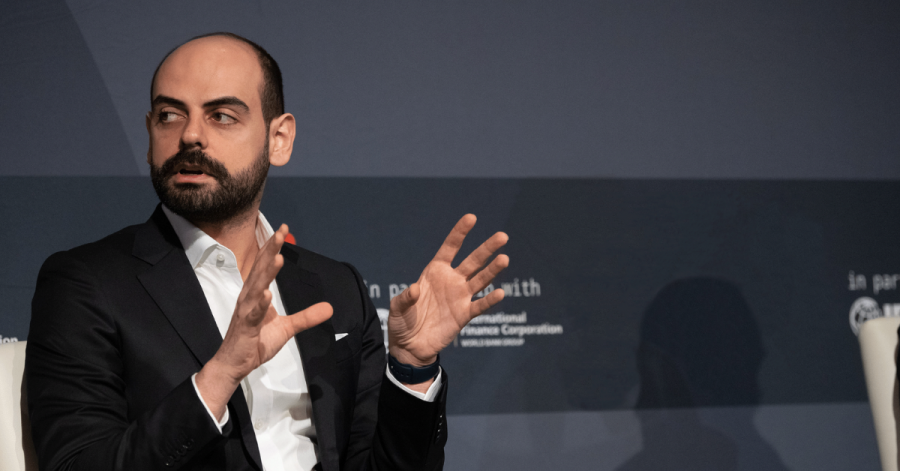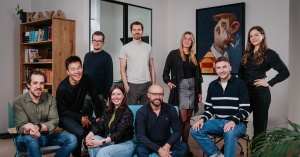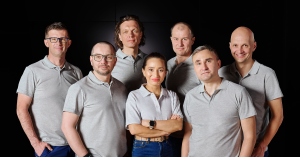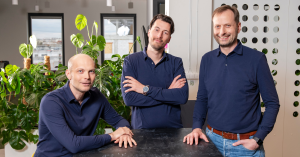“The current macroeconomic environment makes the good investors out there stand out,” Mehmet Atici, Partner at Earlybird Digital East, underlines.
Spotting outliers in a downturn is by no means an easy task. However, according to Mehmet, challenging macroeconomic conditions put even more emphasis on the business fundamentals such as growth potential and profitability. “We always had a fundamentals-first approach, so we are more than happy to be operating in this environment” he adds. “We are also very confident about working with the resilient and capable founders in CEE. Big companies can be built at any time and anywhere, and CEE is no different. As a team, we speak the language of the founders – we look at the fundamentals, the product, and the engineering quality. During downturns, it is essential to have a fund onboard that understands your roots and that is able to fully support you throughout your growth journey, by helping you with your most pressing challenges. Thanks to our very selective investment approach, we are able to provide a good bandwidth to our founders, while combining a global mindset with a regional focus” Mehmet shares for The Recursive.
Our team met with him to find out more about the “secret sauce” of the CEE-focused fund which managed to get to a 20x investment multiple.
Global mindset and regional focus
Earlybird Digital East is a venture capital firm that invests in early-stage tech startups with global ambitions and roots in Emerging Europe. With a total fund size of ca. $400m, DEF seeks to back the most ambitious startups from Emerging Europe in capturing large global markets as category leaders, and already has multi-billion dollar outcomes in its portfolio, like UiPath and Payhawk.
“Our first fund has been the top-performing VC fund globally raised in 2014, and one of the most successful VC funds ever raised in Europe, with a 20x investment multiple. This was mainly driven by UiPath. We were their first investor when they were a team of 10 in Bucharest and remained onboard as a major shareholder until their IPO in New York in 2021. Founders from the region need investors that are experienced in building decacorns and know their culture at the same time. Taking part in such global success stories is what makes us a truly “global” investor – in terms of our mindset, experience, and connections. But we also maintain a core, “local” edge – we are committed to the region, and we will always show up when our founders need us, especially in difficult times.” Mehmet Atici highlights.
Mehmet joined the team in 2013, nearly a year before the first close of Digital East Fund I. Since joining Earlybird Digital East, he made significant contributions to many of the portfolio companies, including leading initial investments like Payhawk, successful exits and forming strong working relationships with the founder teams.
“For early-stage up to Series A and Series B, there is now more VC funding available in CEE. Founders are more ambitious and experienced at scaling VC-backed startups, thanks to the precedents of success in their respective hubs. People look up to other unicorns and they want to create something more ambitious. This creates a positive innovation loop.” Mehmet Atici shares for The Recursive.
Since last year, Earlybird Digital East closed 7 new investments, increasing the total number of CEE-rooted companies to 32. One of the highlights for Earlybird Digital East in 2022 was the acquisition of Minit, the leading Slovak provider of process mining software, by Microsoft.
“As an early supporter of CEE unicorns, we recognize the growth potential of outlier startups and founders from the first days of their journey. For us, the caliber of the founding team is by far the most important factor. We have to share the right values and feel signs of a good working relationship bilaterally. We back only ambitious businesses, by great founders, targeting large markets. We have experience in specific sectors like fintech, cybersecurity, and vertical SaaS, which helps us promptly identify opportunities in these markets. We are mostly engineers – almost all of our partners and investment team have STEM degrees – we speak the language of founders. Because, in the end, what matters is that the outlier founder chooses you as an investor, as well. Best founders talk to each other and that is how we get selected” Mehmet highlights. “But; although these successes may seem obvious in hindsight, they were not that obvious in the early days” he adds, “Therefore, as a VC, our craft goes beyond just recognizing the winners early on. Constant VC support and extensive board experience are vital, especially in difficult times”
The roots of Earlybird Digital East
When DEF started out, there was a large funding gap in CEE, between angel/seed rounds that were led by small local funds; and growth/late-stage rounds that were occasionally led by Western/global funds. DEF’s entire investment strategy is based on filling this gap.
Digital East Fund keeps a constant focus, with each successor fund at around €200m fund size, with the same focus and strategy. With a sweet spot in seed and Series-A stages, the fund is targeting outliers from Emerging Europe, in other words, all countries stretching from the Baltics to Central and Eastern Europe, and Turkey. Despite still being a young fund, the latest DEF fund’s performance is already in the top 5% percentile globally, mainly thanks to backing winners including Payhawk, the first Bulgarian unicorn, and the top contender globally in the spend management software market. “We believe in product challengers in large global market categories”, Mehmet Atici shares for The Recursive. With Payhawk, Earlybird was able to back the first unicorn of Bulgaria, after Romania with UiPath, and Turkey with Peak.
“One thing that investors need to understand for CEE is that they cannot be physically present everywhere, and it is not feasible to have someone allocated locally to each country. That is why we built an internal machine that we use to both source quality deal flow and keep in touch with our network across CEE and diaspora. We have become quite efficient in utilizing both our internally developed systems and external sourcing systems, and are now doing a lot of things automatically,” Mehmet comments on the way Earlybird Digital East manages its internal operations.







